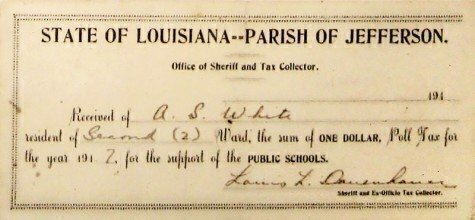Today we celebrate the ratification of not one, but two constitutional amendments: the 20th Amendment (ratified January 23, 1933) and the 24th Amendment (ratified January 23, 1964). Here's what you need to know.
 The 20th Amendment
The 20th Amendment
What it did
It reduced by several months the time between the election and inauguration of the president and vice president, and clarified who should act as president if the president-elect dies or hasn't been chosen yet.
Why it was added
Originally the president and vice president were not inaugurated until March 4. This gap in time allowed the president-elect to get his affairs in order and make the sometimes burdensome cross-country journey to the capital. Later, as transportation and technology advanced, this gap proved to be burdensome on government efficacy, with the so-called "lame duck" presidency and Congress languishing in the lengthy interim.
The 24th Amendment
What it did
It prohibited the use of poll taxes in federal elections.
Why it was added
Following Reconstruction, poll taxes were used throughout the South to attempt to prevent African Americans from voting.







